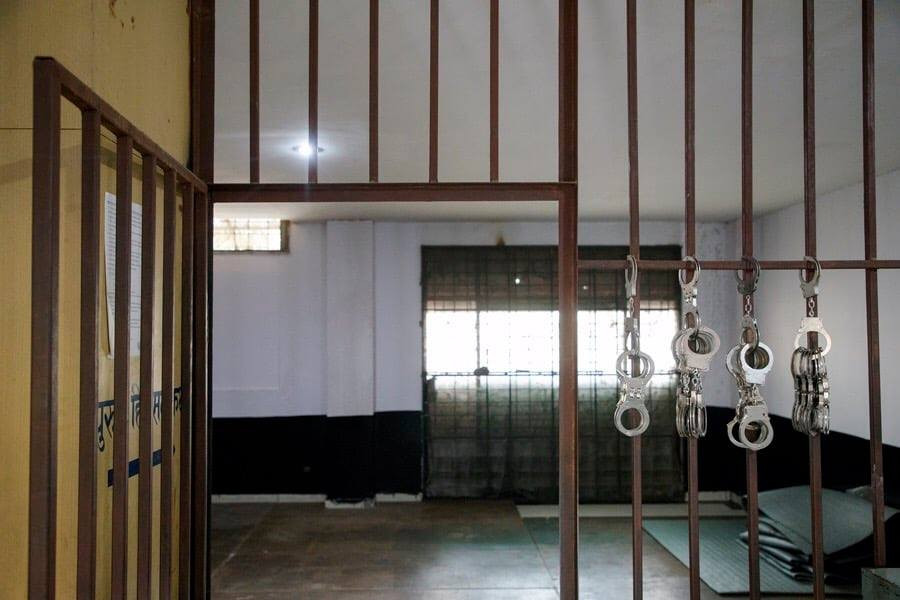National
Supreme Court once again orders authorities to release or reduce jail terms of inmates in view of Covid-19 pandemic
Stating that overcrowded prisons violate the right to health of the prison inmates, the court ordered authorities to seek alternative ways of penalising those behind bars.
Shuvam Dhungana
The Supreme Court on Thursday once again directed the government to immediately release or reduce jail terms of inmates living in vulnerable conditions in various prisons across the country in view of the rising covid-19 cases in prison.
The decision was made by a joint bench of justices Sapana Malla Pradhan and Prakash Kumar Dhungana in response to a writ petition filed by Badri Kumar Thapa, Ram Sharma, Gopal Siwakoti ‘Chintan’, Man Bahadur Rawat, and Khim Bahadur Sunar, all of them inmates at Central Jail in Kathmandu.
Stating that overcrowded prisons violate the right to health of the prison inmates, the court ordered authorities to seek alternative ways of penalising those behind bars.
The bench ordered the government to prioritise children, pregnant women, women with newborn children and people with pre-existing health conditions while releasing or reducing the jail terms of inmates.
The division bench has also directed the government to take into consideration the nature of crimes committed by the inmates and the risk of reinstating them back in society while releasing them.
However, this was not the first time the court has taken such a decision.
Earlier on March 20, the Supreme Court had ordered the government to release prisoners sentenced for up to a year in prison for minor crimes.
The decision was taken at a meeting chaired by Attorney General Agni Kharel with the participation of Home Secretary Maheshwor Kumar Neupane, Law Secretary Rajib Gautam, Police Chief Thakur Prasad Gyawali, and Supreme Court Chief Registrar Nripa Dhwoj Niroula.
The Parliamentary Law, Justice and Human Rights Committee had also issued a directive to the government to minimise the number of jailbirds through a policy decision to ensure proper management of the jails considering the possible outbreak of Covid-19.
Section 155 of the 2017 Criminal Code allows authorities to release inmates sentenced for up to a year in jail by converting their jail terms into fines.
According to Debarsi Sapkota, information officer at the Department of Prison Management, around 1,000 inmates have been released since the March order. However, this has not freed the country’s prison facilities as new inmates are sent in daily.
According to the data provided by the Department of Prison Management, a total of 24,163 people are currently serving time in 74 prisons. Out of which, 14,027 are convicted criminals while the remaining 10,136 are awaiting trial.
“We cannot release inmates on our own, it's the court or government who decides whether to release or keep inmates in prison,” said Sapkota.
The petitioners in the latest case have named the Office of Prime Minister and Council of Ministers, Ministry of Home Affairs, Office of the Attorney General, Department of Prison Management and District Administration Office as defendants.
According to the Department of Prison Management, a total of 210 inmates in 11 different prisons have tested positive so far out of which 53 have already recovered.
In Kathmandu’s Central Jail 65 inmates have contracted the virus and five of them have died so far.
“Thirty-eight inmates are currently undergoing treatment at various hospitals while 2o inmates are in isolation at the prison,” said Laxmi Prasad Sapkota, jailor at Central Jail.




 21.12°C Kathmandu
21.12°C Kathmandu














